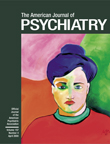In the 1990s, opiate dependence reemerged as a broad public health threat. Heroin available “on the street” is more pure and potent, so that the intranasal route of administration suffices to support a habit. This removes a barrier posed by intravenous administration and opens heroin up to a wider “market.” In this context, the volume edited by Stine and Kosten on treatment of opiate dependence is most timely. Treatment for opiate dependence is highly evolved, the result of a concerted research effort over the past four decades that has produced effective pharmacotherapies and psychosocial-behavioral adjuncts. The clinician has much to offer an afflicted patient, but most clinicians, both in and outside of psychiatry, know little of this field. The authors, drawn largely from the Yale group as well as Dr. Ling’s group at the University of California, Los Angeles, have been major contributors to the progress of this research, and this is reflected in the consistently scholarly and critical approach followed in each of the chapters.
The first two chapters, by Terese Kosten and Eric Nestler, provide lucid overviews of the basic science of opiate dependence and its treatment. Unlike many psychiatric disorders, opiate dependence has strong animal models that seem to closely parallel phenomena of tolerance, dependence, abstinence, and relapse in human addicts. Kosten’s chapter provides an excellent summary of these laboratory paradigms and does an especially good job of discussing their limitations. These are important for clinicians to understand because compelling findings from such models have not always translated into successful treatments in the field of substance dependence. Nestler’s chapter beautifully illuminates our growing knowledge of the neurobiology and neuropharmacology of opiate dependence, including opiate receptor subtypes and the neuroanatomy of opioid systems. The discussion of intracellular processes in response to opiate exposure is particularly fascinating and makes this arcane material accessible to the general reader.
The next set of chapters covers new developments in the optimization of the classic treatment modalities for opiate dependence—agonist maintenance with methadone, detoxification strategies, and antagonist maintenance with naltrexone. As well as updates on the latest research, these chapters also stand as good introductions to the treatment methods—for example, Stine’s discussion of the importance of dose, blood level, and awareness of potential drug interactions in the application of methadone maintenance. Particularly valuable is the critical stance maintained by the authors, such as Rosen’s frank discussion of the limitations of clonidine as a detoxification agent. Farren, O’Malley, and Rounsaville provide an excellent discussion of psychosocial treatment approaches that might be applied to make naltrexone maintenance more effective, as do Avants, Ohlin, and Margolin in their chapter on psychosocial treatments in methadone maintenance. The chapter on acupuncture highlights the surprising accumulation of evidence supporting this alternative treatment modality. In their chapter on the medical care of opiate addicts, O’Connor and Selwyn provide a welcome review for psychiatric clinicians who are increasingly called on to serve a primary care function of assessment and appropriate referral for HIV, viral hepatitis, and other serious medical problems common in opiate addicts.
The final chapters introduce two new pharmacotherapies—the recently approved long-acting maintenance agent levomethadyl acetate hydrochloride and buprenorphine, the intriguing partial agonist that has potential applications for both maintenance and detoxification and may be approved in some format for office-based practice.
In summary, this excellent volume can serve as an introduction to the treatment of opiate dependence, a review for the expert clinician, and a reference text, thanks to the scholarly literature reviews and reference lists. Future editions might be improved by the addition of chapters on prescription opiate dependence, pain management, and treatment of comorbid psychiatric disorders, topics that receive relatively little coverage in the current edition.

